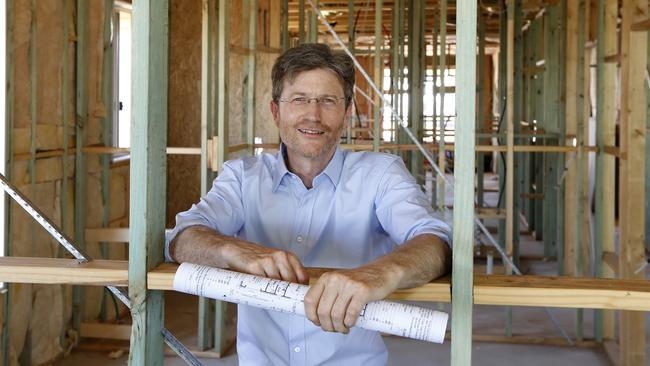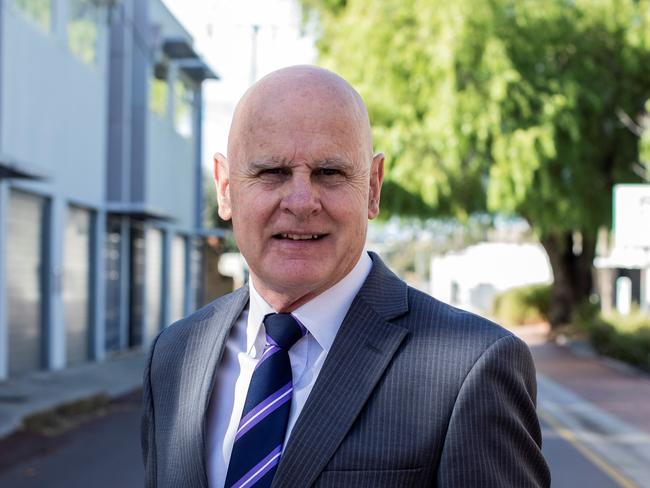‘Absolute last resort’: Fifteen sales staff cut from Hickinbotham Group home building company
South Australia’s largest residential building company made the “difficult decision” to lay off fifteen staff on Friday.

SA News
Don't miss out on the headlines from SA News. Followed categories will be added to My News.
Fifteen sales staff have been made redundant from the state’s largest residential building company on Friday blaming a delay in land being released by the state government.
The Advertiser understands that Hickinbotham Group, which sits at the top of the state’s list of largest home builders, informed fifteen of its sales staff last week that they would be made redundant.
From 2020-22, the housing giant reportedly built 1843 new-homes, which was more than three times the volume of its nearest competitor.

In a statement on Friday, Hickinbotham Group said despite their best efforts, the company made the “difficult decision” to reduce their sales staff after a delay in land being released.
“Delays in land supply due to critical infrastructure connections are causing significant challenges for us and the broader housing industry,” the statement read.
“We acknowledge the Premier’s Housing Roadmap is working to address these challenges and the industry is seeking greater urgency.

“This was an absolute last resort, made only after exhausting all other options.
“For 70 years, we’ve proudly built homes for South Australians.
“We remain committed to working with the State Government and industry to overcome these challenges, and continuing to support our customers and community.”
Major projects for the housing giant are spread across Greater Adelaide and the Adelaide Hills.
Minister for Housing and Urban Development, Nick Champion, told Channel 10 News on Friday that “infrastructure takes time”, and that businesses had to make tough decisions occasionally, and that the Premier’s Housing Roadmap was still on track.

“We appreciate the businesses of all shapes and sizes that occasionally have to make tough business decisions in order to run their business efficiently,” he said.
“It is a difficult thing to do. Infrastructure takes time.
“Our job as a government is to put in the big pipeline, the big projects of land release of infrastructure in order that businesses can plan efficiently.”
He said while staff from Hickenbotham were getting laid off, he was confident that the state’s “dynamic” job market would mean they would not be out of work for too long.
“There’ll be a lot of employers out there hiring. Most of the employees that I talk to are on the hunt for staff.
“So, while one company might be shedding staff, other companies will be hiring.”
In June last year, Premier Peter Malinauskas unveiled his Housing Roadmap, with an estimated cost of $1bn to be spent on water mains and sewerage, which would allow for more land to be released to residential building giants.
The timeline for the map estimated $1.5 billion to be funded jointly by government, industry and taxpayers for SA Water infrastructure to unlock 40,000 new homes over four years.

The Executive Director of the Home Industry Association, Stephen Knight, said the industry was aware of the delay and that it was a problem “everybody” was working to solve.
“It's not unknown that we’ve had issues with land supply, and that’s being driven by the enormous demand for housing over the last couple of years,” he said.
“It (demand) was driven primarily by the home builder grant which sucked up what was available land.
“Since that time, we’ve had strong growth mainly due to population growth, which is a good thing for the state of course, but getting land ready to build on is a time-consuming exercise.”
Mr Knight said land in SA was, “for a long time”, released by the state government in a “timely way”, due to slow population growth, but said the industry has fallen behind recently due to that changing.
“The government has recognised the problem and I don’t think anybody is backing away from that,” he said.
“They’ve put some money on the table, $1.4b, but you can’t solve this in a day.
“I think everybody is endeavouring to get the problem fixed, it’s just been a combination of things that’s driven us to this point, as I say, through high demand.”





